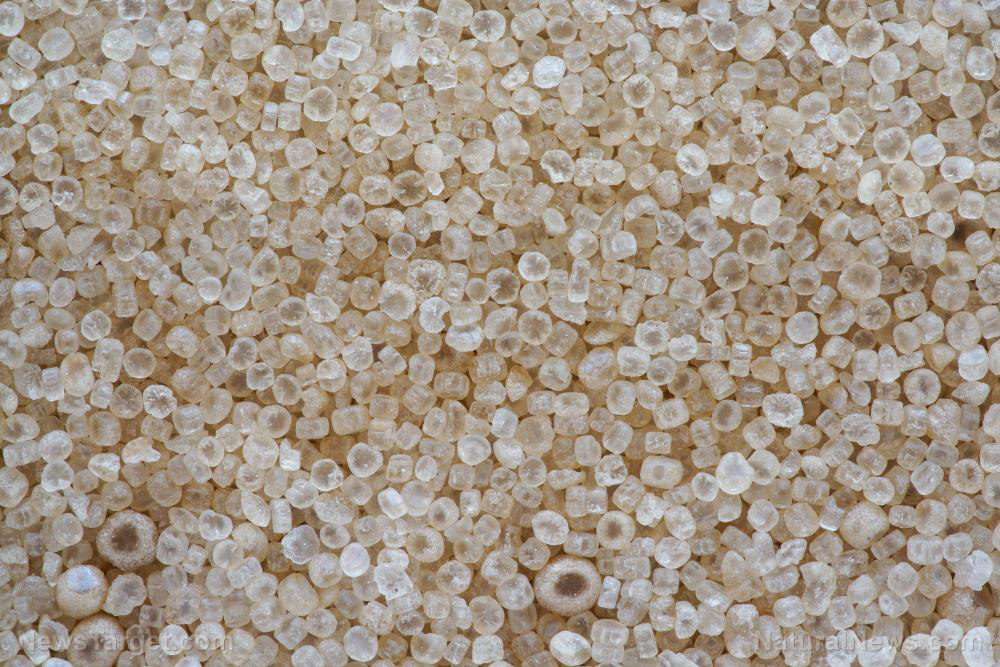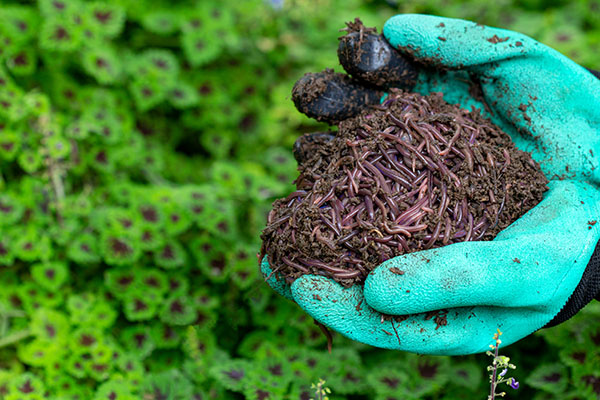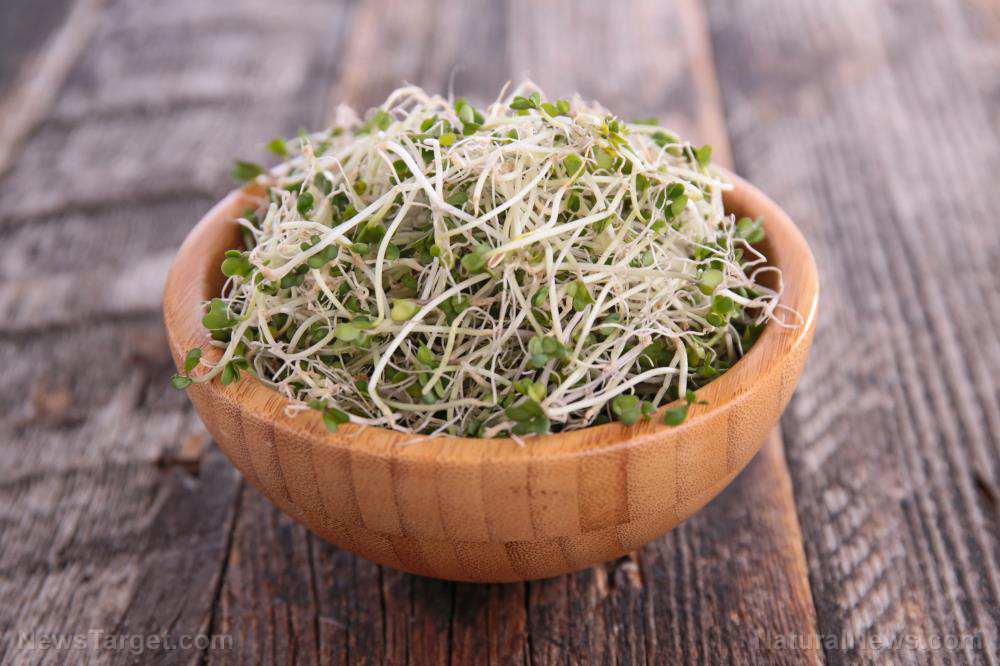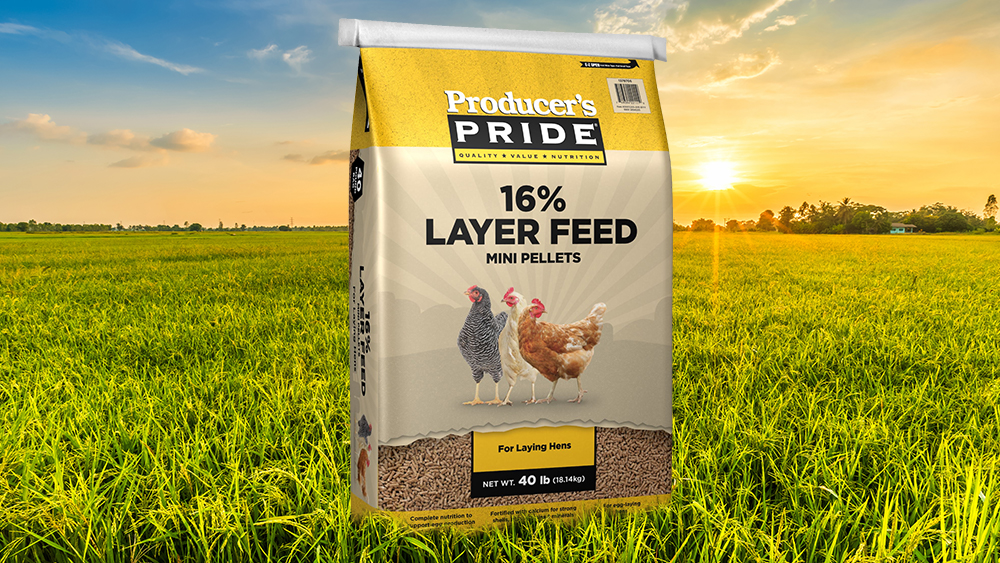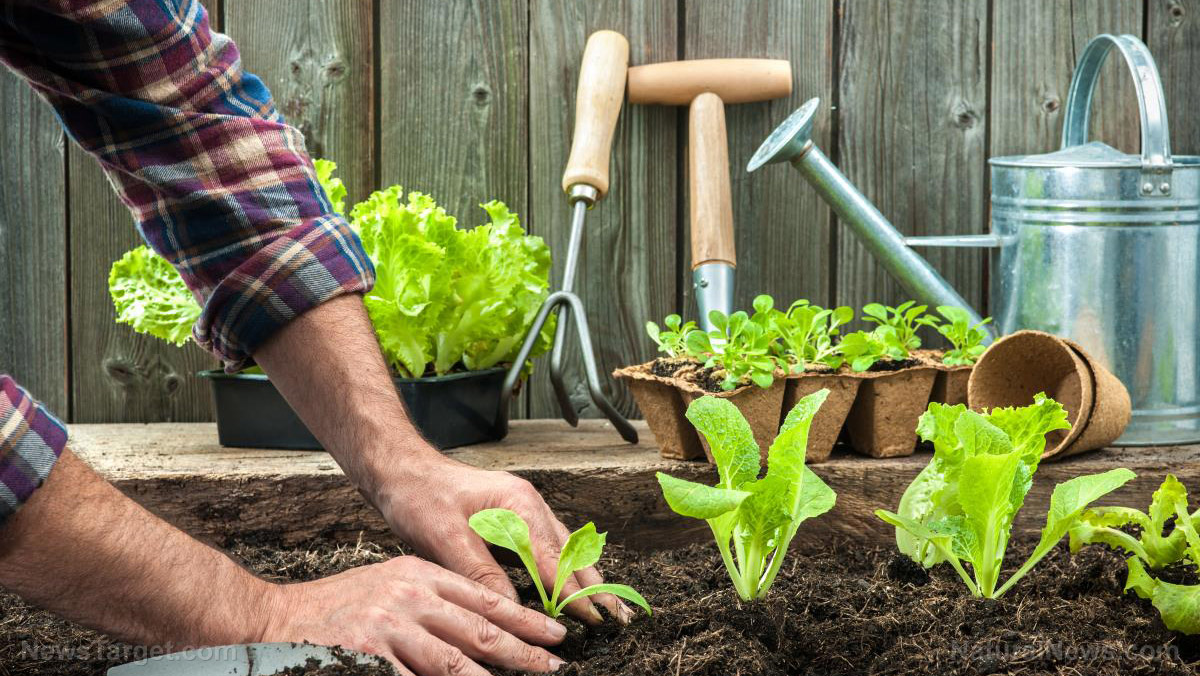Gardening tips: 12 Non-toxic ways to get rid of weeds in your driveway
05/23/2023 / By Zoey Sky

Gardeners and homesteaders may grow different plants, but there’s no doubt they are all united against a common enemy: weeds.
Weeds come in all shapes and sizes, and they can take over almost anywhere, including your driveway. If you want to keep your driveway free of weeds, here are some non-toxic methods to try. (h/t to NewLifeOnAHomestead.com)
While store-bought weed killers are effective, they aren’t safe to use if you have pets, livestock or young children around who could be exposed to the many harmful chemicals in them.
Below are several options to try if you are looking for a safe and chemical-free way to keep weeds out of your driveway.
Boiling water
Boiling water is an effective all-natural solution, but you must use it carefully to avoid any accidents. This method helps kill weeds instantly by overheating or cooking them.
Before using this method, use protective gear and make sure no one else is near your driveway. If you pour the boiling water wrong, it could run off and damage nearby plants or grass.
If you are trying this method, boil the water outdoors over a grill, fire or propane burner near the weeds to make things easier. Use heat-resistant gloves to protect your hands.
Bury in mulch
You can use mulch to retain moisture in the soil or keep the soil and plant roots cool in summer. Mulch can be also used for weed control since it helps suppress or block the growth of weeds.
Cover weedy areas with generous mounds of mulch to prevent them from receiving sunlight. Make sure the layer is thick enough and apply it while the weeds are still tiny or haven’t germinated yet.
If you have dirt driveways or gravel drives that have two troughs between a median of grass, mulch can help improve appearances while also helping to block weeds.
One downside of using mulch is that it can be costly, and you’ll have to keep adding mulch if it gets blown or washed away.
Corn gluten meal
Corn gluten meal is a natural by-product of corn milling. It can also be used for weed control since it works as a pre-killer that prevents weed seeds from germinating and growing.
However, avoid using corn meal gluten if you have mature weeds since it can act as a fertilizer that might help them flourish.
For best results, treat problem areas with a generous dusting of corn gluten meal before weed season begins. Using corn gluten meal can help prevent weeds from growing in the first place.
Cultivate soil in a dirt or gravel driveway
Thoroughly cultivating dirt, especially before weeds sprout, can help stop the growth of weeds.
This method works best for driveways that are free of obstacles. It is less effective for driveways that are made of gravel if not pulled back first.
Power equipment can help you save some time, but you can also try this method with a bit of elbow grease.
You can also combine this method with corn gluten meal at the start of the season.
Flame weeder/propane torch
This method requires a lot of prep because it can be dangerous if you don’t know what you’re doing.
Torching weeds using a flame weeder or propane torch is an effective, chemical-free way of eliminating weeds in your driveway, especially if you are dealing with major infestations or larger areas.
By burning weeds to a crisp, you can stops them from regrowing. But while using a flame weeder is quick and efficient, you must use it with extreme caution. Do not use a flame weeder in high-fire risk areas or times.
Use this method as a last resort because it can also harm beneficial soil organisms, disrupt soil ecology and potentially scorch your driveway.
Grazer animals
If you have grazer animals on your homestead, you can use them to deal with your weed problem.
Many grazing and browsing animals, like chickens, goats and sheep, will eat most plants that are considered weeds. Try this method if you are dealing with areas that have lots of weeds or are too sensitive for other control methods.
Make sure to supervise the animals so they don’t eat your other plants, especially if you are growing vegetables in your garden.
Sometimes, animals won’t rip out the root and the weeds will come back. If this happens, just let your animals get rid of the weeds again.
Hand pulling/weeding
Pulling weeds by hand is one of the most effective and cheapest ways of getting rid of weeds in your driveway. However, this method also requires more of your time and energy.
Pulling weeds by hand means you can target the weed root to ensure the weed will not grow again. If you prefer this method, remove the entire root system so weeds don’t grow back.
Use this method when dealing with small weed infestations or for eliminating a weed that pops up in an otherwise well-maintained driveway.
Hand weeding is one of the most eco-friendly options on this list since it doesn’t require the use of chemicals or other tools, making it a safe and sustainable way to maintain a beautiful and weed-free driveway. (Related: 19 Chemical-free ways to get rid of weeds in your home garden.)
Mechanical removal
You can use tools like a weed-remover, trimmer or edger to get rid of weeds and their roots in your driveway.
Mechanical removal is best for larger weedy areas or badly overgrown cracks and edging since it will remove the entire root system at once. It’s also easier and quicker than hand pulling.
If you’re using a trimmer or specialty power edger, make sure you are properly hacking up the roots and not just clear-cutting the stems.
Another option is to use a manual weed remover, which is faster and more accurate than hand pulling. This method is still laborious and might not help if you have weeds that have “protected” roots like those growing from between cracks or under a concrete slab.
Salt
Salting the earth will make the soil barren, so you should only use this method if you don’t have other plants in your driveway.
Salt is a safe and affordable tool for getting rid of weeds. It works by dehydrating them and preventing them from taking in moisture, which could kill weeds easily.
To use salt as a weed killer, mix it with water to create a saltwater solution and apply it to weeds. Alternatively, you can use a small mound of salt directly on weeds.
Do not spill the saltwater solution or salt on nearby plants or grass since it is an indiscriminate solution.
Salt can also disrupt the natural balance of the soil, which can make it difficult for other plants to grow.
Use salt sparingly to avoid harming other plants and nearby soils.
Smothering
If you have the time and patience, smother weeds by covering up problem areas with thick layers of bed liner, newspaper or cardboard to help stop weeds from growing.
This method is a great option since it helps kill off existing weeds by physically halting growth and completely blocking out sunlight, which the weeds need to live.
However, smothering has several downsides. It can be an eyesore, and it is a never-ending project since you will need to keep adding layers and replacing them as they are broken down by weathering or shredded by animals.
Solar sauna
A solar sauna is an innovative weed removal method that uses the unlimited power of the sun. It is ideal if you want to avoid disrupting soil ecology except on a local level.
To use a solar sauna, you need to first cover the weeds with a clear plastic sheet or drop tarp. Next, weigh the plastic sheet down on the edges to seal the weeds inside.
As the sun shines, the area inside the tarp will heat up drastically, frying the weeds until they are dead and unable to regrow.
A solar sauna won’t harm nearby plants and grass. This method will contain weed seeds when they are mature, and will prevent them from spreading any further into your driveway.
However, this method requires lots of sun, takes a while to work and can be an eyesore.
Vinegar
Vinegar is another eco-friendly and non-toxic way of eliminating weeds in your driveway.
Vinegar works because it contains acetic acid, which can cause weeds to dry out and die. Vinegar is safe to use even if you have pets and children at home.
To use vinegar as a weed killer, mix it with water in a spray bottle in a 3:1 ratio. Apply the vinegar mixture directly to the weeds, taking care not to spray it on nearby plants or grass.
Apply the vinegar mixture on a windless, calm day because vinegar is a non-selective herbicide. Even when mixed with water, a light mist of vinegar can hurt or kill any plant it comes into contact with.
Compared to store-bought weed killers, you will need to apply the vinegar mixture several times to get rid of stubborn or deep-rooted weeds.
Keep your home garden and driveway free from harmful herbicides and chemicals, and try non-toxic methods to eliminate weeds like hand weeding or spraying a vinegar mixture.
Watch the video below to learn about 10 organic ways to control pests in your home garden.
This video is from the Daily Videos channel on Brighteon.com.
More related stories:
Work smarter, not harder: 6 Home gardening hacks to try.
Weed-free gardening: 4 tips for effective weed control.
4 Easy ways to control weeds without using toxic chemical herbicides.
Sources include:
Submit a correction >>
Tagged Under:
green living, herbicides, home gardening, homesteading, off grid, organic farming, preparedness, prepper, prepping, survival, sustainable living, tips, weed control, weed management
This article may contain statements that reflect the opinion of the author
RECENT NEWS & ARTICLES
OrganicFarming.News is a fact-based public education website published by Organic Farming News Features, LLC.
All content copyright © 2018 by Organic Farming News Features, LLC.
Contact Us with Tips or Corrections
All trademarks, registered trademarks and servicemarks mentioned on this site are the property of their respective owners.



